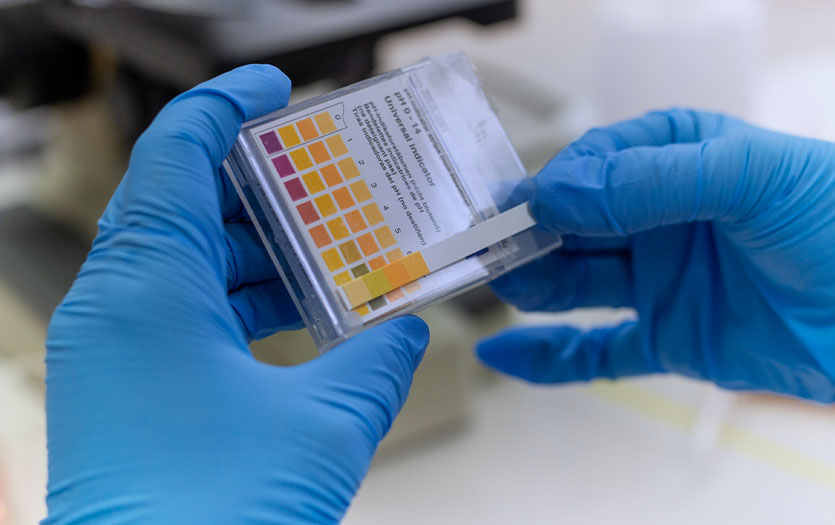
This post was written by Manpreet Khemka, MD, PPG – Psychiatry.
Attention deficit hyperactivity disorder (ADHD) is a common neurodevelopmental condition that typically begins in early childhood and can persist into adulthood, affecting about 3-5% of school-age children. It often runs in families, with approximately 25% of biological parents also having the condition. In this post, we’ll go beyond the diagnosis, to discuss the relationship between the gut microbiome and the brain, and how you can care for your gut to support your well-being.
You can learn more about the neurodivergent brain in this post.
Symptoms of ADHD
The symptoms most associated with ADHD are categorized as:
-
Inattention: Individuals may need help staying on task, maintaining focus and staying organized.
-
Hyperactivity: They may seem to be constantly moving, even in inappropriate situations, or exhibit excessive fidgeting, tapping or talking. In adults, hyperactivity may manifest as extreme restlessness or excessive talking.
-
Impulsivity: This involves acting without thinking or struggling with self-control. It may also include a strong desire for immediate rewards or an inability to delay gratification.
According to the Centers for Disease Control & Prevention (CDC), the incidence of ADHD has increased in the past few decades. Current understanding of ADHD identifies genetic factors, problems in brain development, imbalances in neurotransmitters like dopamine and norepinephrine, as well as birth factors such as low birth weight and prematurity as potential causes. Lifestyle factors, including gut health and dietary factors, have also been suggested to explain this increasing trend.
Gut health
Gut health refers to the balance and function of the gastrointestinal tract, which includes the stomach and intestines. It involves a complex interplay of factors, including the gut microbiome, the integrity of the gut lining, and the efficiency of digestion and absorption.
The brain-gut connection
Gut health can influence mental health through three primary mechanisms:
1. The gut-brain microbiome axis
2. Neuroinflammation and oxidative stress
3. Individual nutrients and chemicals
The gut microbiome is an ecosystem consisting of trillions of microorganisms, including several species of bacteria and other microbes, that reside in the human digestive tract. Humans are born with a largely devoid gut microbiome, which begins to be colonized during delivery through interaction with the environment, caregivers and feeding practices.
Our relationship with this ecosystem is two-way. Maintaining an optimal gut microbial environment helps to effectively maintain the integrity of the digestive tract, regulate inflammatory processes in the body and regulate signaling to the brain through enteric neurons. Industrialized lifestyles are causing a decline in the diversity of gut microbiomes.
Brain-gut microbiome interactions
The brain can regulate the gut environment and microbial gene expression through the autonomic nervous system. Microbes also communicate indirectly with the brain through gut-derived molecules (like short-chain fatty acids, secondary bile acids and tryptophan metabolites) or through microbe-generated signals (through the vagus nerve).
Microbiota can generate neuroactive chemicals like GABA, serotonin, norepinephrine and dopamine. Microbiota also plays an important role in generating peripheral immune responses, stimulating the brain's microglial response. Altered bidirectional interaction can change the behavior of this system, leading to brain-gut disorders, including mental health disorders like depression and anxiety and developmental disorders like autism and ADHD.
Individual nutrients are necessary cofactors in the production of neurotransmitters. For example, dopamine and norepinephrine production begin with tyrosine and require iron, copper, magnesium, folate, vitamin B6 and Vitamin C. Nutrient insufficiencies in any of these vitamins and minerals may decrease levels of these basic neurotransmitters and may contribute to symptoms of ADHD and a lack of response to conventional treatment strategies.
Caring for the gut
So, how can we be more cognizant of our gut health? Constipation, nausea, recurring abdominal pain, poor satiety and cravings for high-calorie food are some signs indicative of poor gut health. Timely recognition and addressing these can not only help with ADHD symptoms, but also contribute to overall well-being. Focus on changing your lifestyle and, through that, your gut microbiome.
Tips for improving gut health and rebuilding the gut microbiome include:
-
Hangry bacteria in your gut microbiome are linked to chronic disease. Feeding them what they need can lead to happier cells and a healthier body.
-
Strive to make slow and steady changes toward a healthy diet, which should be high in plant-based food. Minimize processed food. Eat whole, organic food—or, as your grandparents called it, food!
-
To supercharge your gut health, try eating 30 different types of fruits, vegetables, nuts and seeds per week. Diversifying your gut microbiome is akin to planting a tropical forest. We won’t plant a single tree in the forest but a diverse group of plants.
-
Include whole grains and a variety of naturally fermented foods such as sauerkraut, kimchi, yogurt (homemade from live culture, not store-bought with added sugar).
-
Include foods rich in flavonoids and polyphenols (fruits like berries, vegetables like spinach, artichoke, red onions, shallots, olives, nuts and seeds). When metabolized by microbes, these create anti-inflammatory metabolites that circulate in the blood.
-
Include foods rich in omega-3 fatty acids.
- Supplement a healthy diet with vitamins and minerals. It’s important to note that the benefits of dietary supplements through the addition of individual nutrients cannot be achieved if the overall diet is unhealthy.
- Include microgreen sprouts in your diet regularly.
-
Go for organic produce as much as possible. This produce is seasonal and local, and it thereby avoids chemicals needed to increase shelf life and is detrimental to the gut microbiome.
-
Develop a love for new skills like gardening so that you can grow your vegetables and fruits. The gardening process exposes you to diverse microbiota and adds diversity to your gut microbiome.
-
Do not ultra-sanitize your and your young kid's life.
- Antibiotics are essential for infection control and are necessary in some instances, but must be used judiciously.
- Develop a routine for stress reduction by consistent daily practices like abdominal breathing and mindfulness-based stress reduction.
- Dietary counseling with an expert can be an excellent step to educate oneself with principles for good gut health.
-
Be cautious of artificial color and preservatives like sodium benzoate.
The role of probiotics has been suggested, but well-controlled clinical trials in humans need to be done to establish therapeutic benefit.
Like we have since the beginning of human existence, we must rely on our microbial friends. Good things will happen if we can find a way back in our lifestyles centered around our gut.
If you have concerns about your gut health and/or symptoms associated with ADHD, speak with your primary care provider or dietitian to establish a plan.



